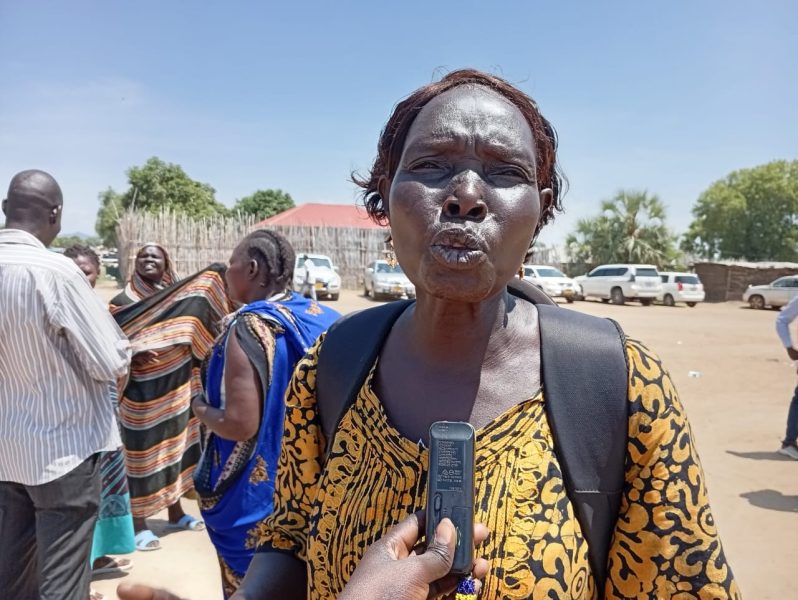
Residents of Gudele Block 9 Extension are finally seeing their decades-long struggle for land ownership come to an end, a dream some never hoped to realize.
Recently, the Ministry of Housing and Public Utilities in Central Equatoria State launched a long-awaited land plot allocation program, granting legal recognition to residents who have lived in the area without proper documentation for nearly 20 years.
The initiative, unveiled during a ceremony attended by local leaders, engineers, and community members, aims to formalize land ownership and provide long-term stability to the area’s residents.
Long-time resident Basilica Poni Jada, who has lived in the extension for 24 years, expressed deep relief at finally receiving legal confirmation of her land rights.
“I have built and lived here since 2000,” Poni said. “Today, I am happy because, after 24 years, I finally have my land documents.”
Poni recalled the painful experience of temporarily leaving South Sudan for medical treatment for her child, only to return and find someone had taken over his land.
“I went to court to resolve the issue, but they told me to wait until the land allocation process was finalized,” she explained. “That’s why I had to wait all these years.”
Poni urged the government to ensure fairness in land distribution, emphasizing the need to protect residents regardless of their financial status.
“My message to the government is simple: do not favor those with money. Support the rightful landowners, whether they are wealthy or not,” she asserted. “Too often, those with financial power get priority, leaving others behind.”
Central Equatoria State’s Minister of Housing and Public Utilities, David Morbe Aquilino, reassured residents that they would receive land ownership documents as promised.
“I can assure you today that everyone living here will get their land because you have stayed here for a long time and deserve it,” he declared.
Aquilino urged close collaboration between the community and the technical teams responsible for demarcating plots to ensure a smooth process.
Land dispute in South Sudan, Juba City in particular, are rampant. The matter has become complex, characterized by corruption and impunity due to dysfunctional legal mechanisms guiding acquisition process.
However, Area Chief Augustino Lado emphasized the significance of government intervention for the future development of Gudele Block 9 Extension.
“Without proper land documentation, we cannot expect services like electricity, hospitals, or water,” Lado noted. “This land allocation will pave the way for essential services, and I am hopeful it will lead to further improvements in our community.”
Residents expressed relief and optimism, hoping that legal recognition of their properties will bring lasting stability and development.
The launch of the land allocation process marks a significant milestone in legal land ownership, setting the stage for future infrastructure and social services in Gudele Block 9 Extension.

